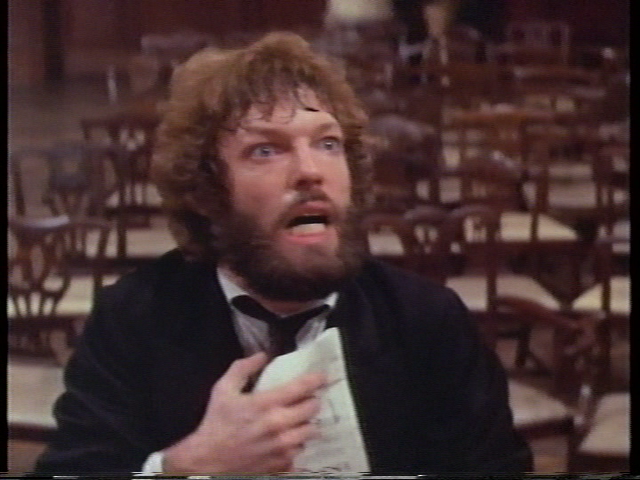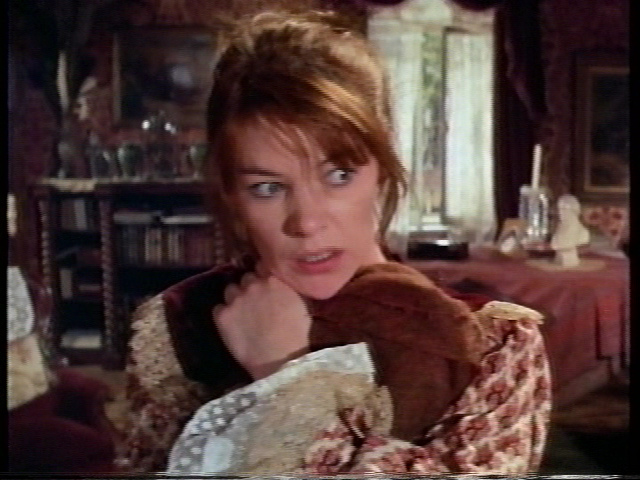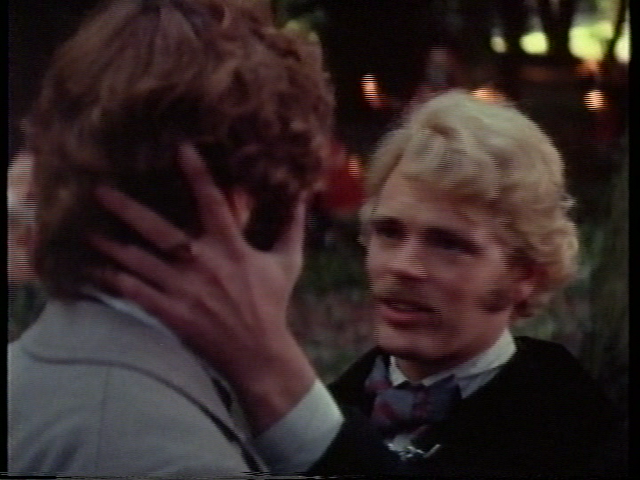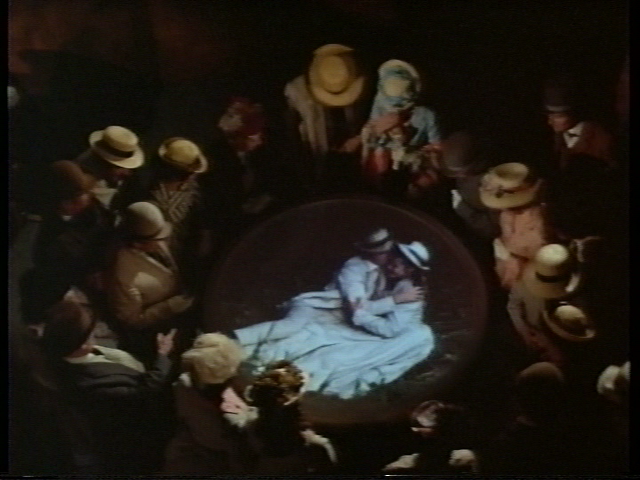|
Genres, Themes, Actors, and Directors:
- Biopics
- Composers
- Glenda Jackson Films
- Homosexuality
- Ken Russell Films
- Marital Problems
Review:
Ken Russell’s flamboyant biopic of Peter Tchaikovsky is based on true events, but takes great liberty with details. Indeed, Russell seems most concerned with chronicling the emotional highs and lows of Tchaikovsky’s tortured life, primarily focusing on the ways in which his desire to conform to societal expectations — by marrying, rather than continuing his dalliances with young men — wreaked havoc on both his personal and creative life. Critics at the time of the film’s release were unimpressed, completely missing the point of Russell’s vision; nowadays, audience members accustomed to “creative” imaginings of artists’ lives may well have more tolerance for The Music Lovers, which remains a heady, visually sumptuous experience, one which successfully portrays the havoc wreaked on both husband and wife when marriage is based on pretense rather than authentic desire. Richard Chamberlain is perfectly cast as Tchaikovsky (especially given what we now know about his own closeted homosexuality), and his piano playing (while dubbed by a professional) is truly impressive. Glenda Jackson nearly steals the show, however, as Tchaikovsky’s ambitious, mentally unstable wife who simply can’t understand why her husband has no desire to make love to her.
Redeeming Qualities and Moments:
- Richard Chamberlain as Tchaikovsky

- Glenda Jackson as Tchaikovsky’s wife in-name-only

- The powerful, fantasy-laden opening concert sequence

- An astute look at Tchaikovsky’s tormented sexuality

- Sumptuous set designs and costumes

- The hilarious “camera obscura” scene

Must See?
Yes, as a prime example of Ken Russell’s inimitable biopic style. Listed as a cult movie in the back of Peary’s book.
Categories
Links:
|
One thought on “Music Lovers, The (1970)”
A must, and among Russell’s masterpieces.
I’ve read in a number of places that Melvyn Bragg’s script – and what Russell did with it – strays from the truth (the same can be said for most biopics); yet, those hastening to mention that fail to also mention what the stretches of truth are. From what I know of Tchaikovsky’s life (the basics), ‘The Music Lovers’ appears fundamentally sound in regards to the facts. (And it actually skirts certain issues smartly by assuming viewer knowledge.)
At any rate, on its own terms, it’s believable. Tchaikovsky won’t accept that he’s gay and sets out to protect his image and, more importantly, keep untainted the glorious music he will leave behind. (And glorious it is; esp. in the early, lengthy sequence in which we hear the Piano Concerto in B-Flat minor – it’s genuinely thrilling and Chamberlain’s ‘playing’ is, indeed, impressive.)
He is, of course, warned of the danger of not being true to himself (“Not all women are satisfied with spiritual relationships.”) but nevertheless dives into marrying someone he hardly knows and soon enough (and along with his wife) suffers the consequences (“My marriage has become a dreary, unbearable comedy. All that is left is to pretend. But to pretend all one’s life is the height of torture.”).
As the composer, Chamberlain gives a much more assured and nuanced performance than might be expected. He’s really quite good. As is Jackson – here arguably turning in her best work. (Reportedly, after ‘The Music Lovers’, she’d had just about enough of the ‘mad’ Russell and, so, turned down the role Vanessa Redgrave accepted in ‘The Devils’…which all worked out fine.) As well, certainly contributing to the brilliance of the film is the masterful work of DP Douglas Slocombe.
The ‘camera obscura’ scene is quite funny, and welcome in a film with tons of music but little humor. In fact, two of the more disturbing sequences: 1) Tchaikovsky being actually horrified – at length – at the sight of his unbridled bride’s naked body; 2) the “You’ll be here forever.” sequence: a mixed message that goes mad.